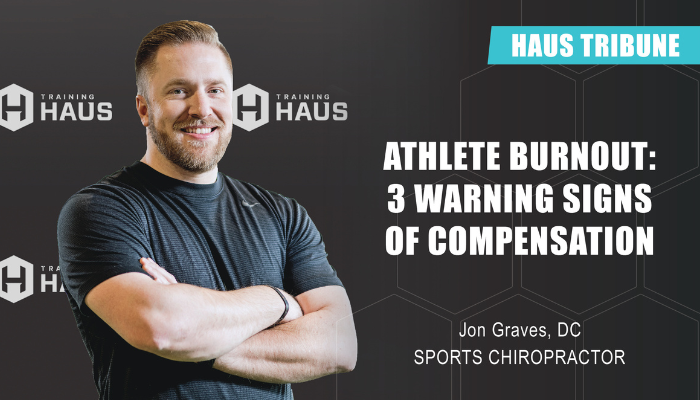
Athlete Burnout: 3 Warning Signs of Compensation
Have you ever heard someone say, “You’re hurt because your body is compensating for something else?” Compensating or compensation may be a word that you have heard but maybe don’t understand.
Compensation is when your body makes subconscious adjustments because something in your body is not operating properly. By making these adjustments, your body can continue to operate, but at a suboptimal level. Over time, your body is unable to keep up with the demands, leading to decreased performance and injury.
How can you avoid compensation? If you know what to look for, the warning signs can be recognizable.
1. Unexplained Stiffness or Soreness On Only One Side of Your Body
When you feel stiffness or soreness on only one side of your body – even though you used both sides equally – that may be a sign of compensation. For example, you do squats and the following day you have tight muscles in your right leg but not in your left leg. Squats use both legs equally, so an unequal amount of soreness is a warning sign.
Muscle stiffness or soreness on both sides of your body is common following a workout. However, if you can’t think of a reasonable explanation for why you feel it more on one side than the other, then your body is likely trying to tell you that you are compensating.
2. Muscle Stiffness or Soreness Lasting More Than 72 Hours
Another clue our body might be compensating is stiffness or soreness lasting longer than 72 hours. It is completely normal to temporarily feel muscle stiffness or soreness after a heavy day at the gym or a long day playing your sport. Muscles usually need 24-48 hours to recover, so anything lasting longer than 72 hours may be your body’s attempt to get your attention to let you know that you are compensating.
3. Feeling Weak During Workouts or Games
The last recognizable clue is a feeling of weakness while competing or lifting weights. This weakness doesn’t come from being fatigued but rather a type of inhibition that happens when our muscles are compensating or working in a way other than how they are intended to. Our body uses a lot of spinal reflexes to operate at a high level without having to think about it. One of the downsides is it can lead to athletes experiencing periods of temporary weakness. This type of weakness is difficult to identify but can be restored quickly. Once identified and corrected, you can be back to full strength that same day.
If you’re compensating, one way you can get back to peak performance is to see a sports chiropractor. At Training HAUS, our sports chiropractor specializes in identifying the ways your body is compensating and helps correct the root issue. Whether you are compensating from a recent injury, overtraining, or daily life, we are here to help.

